Composing a traditional Iranian opera using the Iranian modal system, dastgāh, has always been my dream. I first approached this by composing an opera called Ashura followed by the operas Rumi and Hafez. I believe that in order to attract an international audience for Iranian opera, it is essential to fuse dastgāh with Western classical forms.
Tag Archives: molana
Latest posts
- Transition to Enlightenment: Six Lectures on Mozart’s String Quartets (5)
- Nasser Masoudi: The Voice of Gilan and a Legacy of Iranian Music
- Farhad Poupel: The Voice of the Shahnameh in the Orchestras Around the World
- Five Major Myths About Mozart’s Life
- Bahma Rajabi Passed Away!
- Reza Vohdani; Unveiling unpublished works, preservation of Iranian classical music
- Ahmad Pejman Passed Away!
- Timeless or Timely: The Role of Historical Context in Defining Artistic Value
- Leading the Charge in Censorship
- The Legacy of Khosrow Jafarzadeh
- Transition to Enlightenment: Six Lectures on Mozart’s String Quartets (4)
- Fereydoun Shahbazian, An Iranian Musical Icon Passed Away
From Past Days…
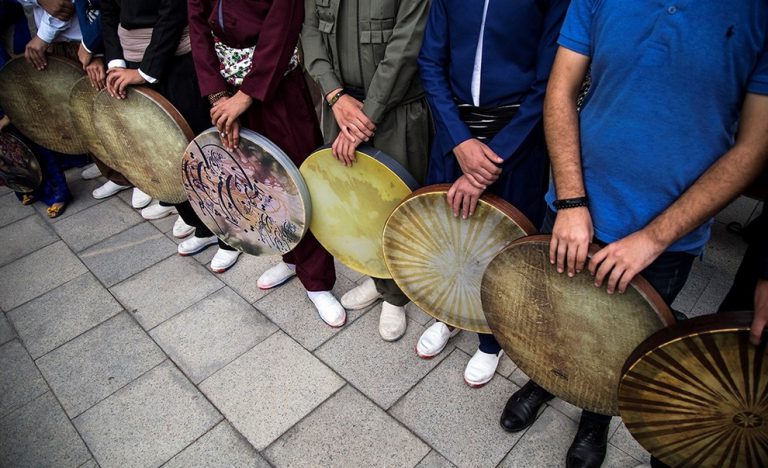
From Tradition to Trend: The Evolution of Decorative Arts in Iranian Dafs
Daf is one of the percussion instruments associated with the Kurdistan region of Iran, which has a special place in Iranian music. In the past, animal skin was used for the drum head, but now most of the tambourines in the market are made with artificial skin, which are designed with various decorations.
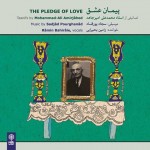
“Pledge of Love”
The “Pledge of Love” is the first album in a series composed based on the tasnifs by the renowned Iranian tasnif-maker Mohammad Ali Amir Jahed and recorded by Sahba Kohan Ensemble with Ramin Bahiraie as signer.

A Note on the Occasion of Houshang Zarif’s Demise
No introduction is needed when talking about the position of the late Houshang Zarif (1938-2020) in the Iranian music. His character and personality are so well-known among musicians that his name per se is a symbol and role model for the Iranian youth. “Becoming Houshang Zarif” is the dream of many young people who enter the world of music in Iran and many of whom retire regretting the realisation of this dream.

Parviz Meshkatian’s Heart Beat for People (I)
Amidst the popularity of traditionalism in the Iranian music, Parviz Meshkatian (1955- 2009) moved from Neyshabur to Tehran. He learnt to play Santour and became educated in the Radif of Iranian music at the Centre for Preservation and Promotion of Music which was at the forefront of promoting the return to musical traditions. Despite his studies at a centre which promoted the use of the phrase “traditional music” in Iran, Parviz Meshkatian emerged as a creative artist whose innovative and unique ideas attracted the admiration of Iranian artists and people from different walks of life. This article studies the reason behind Meshkatian’s deviation from the wrong approach of traditionalism strongly promoted by the Centre and argues that apart from the issue of theory of Iranian music, he can be considered as Ali Naqi Vaziri’s successor.
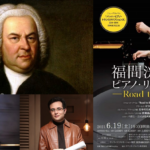
Farhad Poupel’s piece, Road to Bach, performed at Suntory Hall
On June 19, 2021 , young Iranian composer and pianist, Farhad Poupel’s piece, Road to Bach, was performed at the prestigious Suntory Hall by the great Japanese pianist, Kotaro Fukuma. The piece was commissioned by Kotaro Fukuma to have its world premiere in Suntory Hall during a concert by the same name.
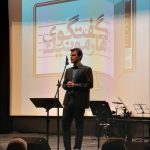
Celebrating 20 Years of Harmony Talk’s Journey: Resilience, Evolution, Honoring the Legacy and Navigating Future Growth
In a momentous celebration of two decades, the “Arasbaran Cultural Center” was the stage for the 20th anniversary of “Harmony Talk”, an online journal that has become a cornerstone in the music community. Sadjad Pourghanad, the editor-in-chief, delivered a speech that resonated with gratitude and vision.

Principles of Playing Violin (IV)
Pattern No.3/1 Left hand finger Placement: 3/1/1: Landing Fingers on one String: In preliminary stages of training, an apprentice should pay attention to the principle of keeping fingers while placing them on the fingerboard. Professional violinists pay less attention to this principle. Novice player’s complying with this principle, in preliminary stages of training, has several…
Read More
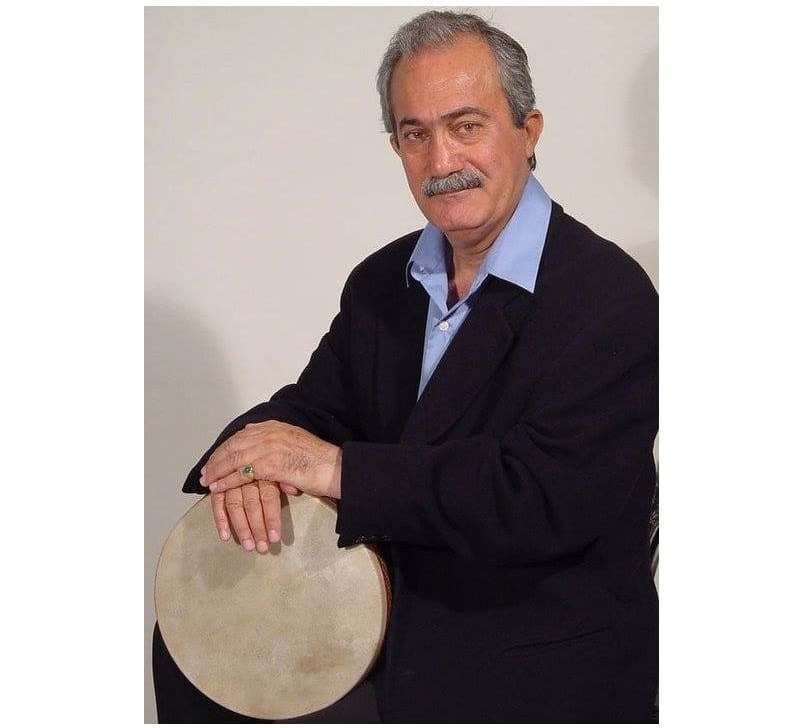
Bahma Rajabi Passed Away!
Bahman Rajabi, the renowned tonbak (Persian goblet drum) player and educator, passed away at his home at the age of 86 due to a heart condition. He was the founder of a distinctive school of tonbak playing, and his teaching methods have been widely used by instructors of the instrument for decades..

The Structure of Kurdistan Daf (V)
ehrouz Mohammadi, “Daf and its feasts in Ghaderieh’s Tekyeh” mentions that the outer thickness of arch where studs are located, [is] between one to one and a half centimeters (Mohammadi, 2001: 12). The thickness of arch should be gradually reduced from the installation place of rings to skin (Avazeh of Daf) to create a high volume, clear sound from Daf; also, the connection of arch to skin should not be less than one millimeter, because in this case the skin will be torn due to the sharpness of the wood (Mogharab Samadi, 2009: 79-78). The thickness of wood on the skin side is about two to three millimeters (Tohidi, 2002: 79).

Prominent Iranian Musicologist Passes Away in Vienna
Khosrow Djafarzadeh, musicologist and architect, who was also one of the main authors of HarmonyTalk journal passed away on 15 July 2019.